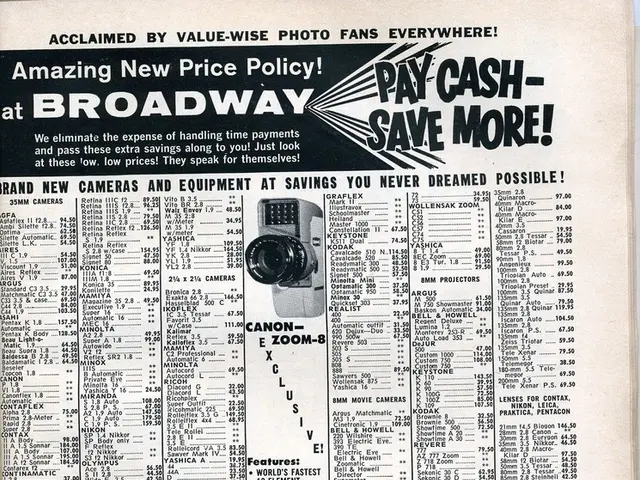Individual under Investigation for Allegedly Stealing Old Lady's Funds for Betting Purposes
In Bridgeport, West Virginia, a 46-year-old man named C.E.B. is facing potential charges for allegedly misusing an elderly woman's debit card. The elderly woman, a resident of the same town, reportedly lost over $10,000 due to the financial exploitation.
The suspect is accused of using the debit card for various transactions, including spending thousands of dollars at a local gambling establishment called "Hotspot." Other purchases were made with the card, but the exact details are yet to be disclosed.
The elderly woman agreed to give her debit card to the suspect, who paid for groceries and gas for her car. However, she wasn't aware of any additional charges or that the suspect used her card for gambling.
Law enforcement uncovered that the suspect had taken approximately $10,031 from the elderly woman. The bank contacted the victim's bank after investigating the case, and the elderly woman was informed about the fraudulent charges.
Under West Virginia Code §61-3-54, knowingly taking another person's identifying information (such as debit card information) without consent to fraudulently make financial transactions is a felony punishable by up to 5 years in prison, a fine up to $1,000, or both.
The charges found in the financial statement include cash withdrawals, cash back, expenditures at gambling establishments, and purchases from Amazon and Elevate Jewels. The potential charges for the accused individual could include identity theft, theft or fraud, exploitation of an elderly person, and possibly charges related to illegal gambling transactions.
If gambling activities are funded through misused debit cards, this could compound the charges. Using stolen or fraudulently obtained funds for gambling may be considered part of the theft or fraud scheme.
The sentence could involve imprisonment (up to 5 years or more depending on charge severity), fines, and restitution. It's important to note that simply owing debts from debit card misuse or gambling is not itself grounds for jail without associated criminal charges.
In summary, the core relevant charge under West Virginia law for the scenario described is likely felony identity theft and theft by exploitation, with penalties including prison time and fines. The case serves as a reminder to be vigilant about the use of personal financial information and to report any suspicious activities to the authorities.
The suspect's alleged activities, including gambling-related transactions at a local casino-and-gambling establishment, could lead to additional crime-and-justice charges, such as identity theft, theft or fraud, and potentially illegal gambling transactions. General-news reports on the case emphasize the importance of vigilance with personal financial information, especially when it comes to gambling-trends that could potentially involve fraudulent activities.






